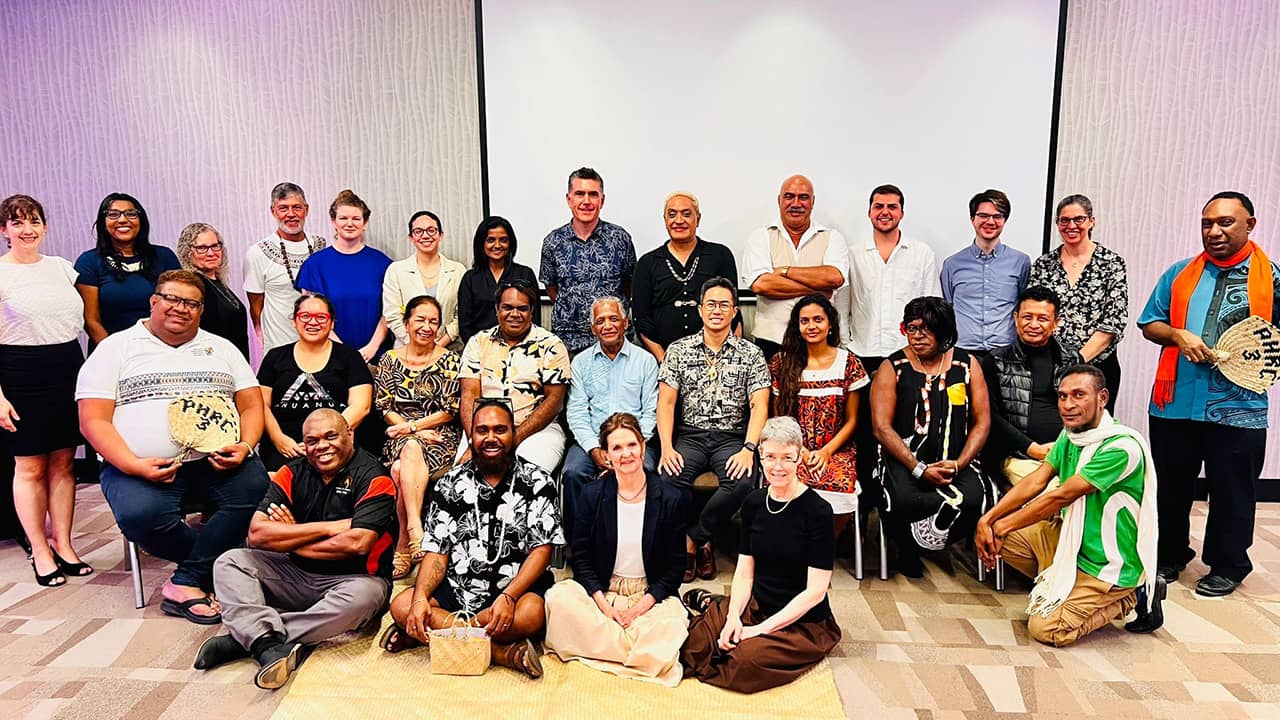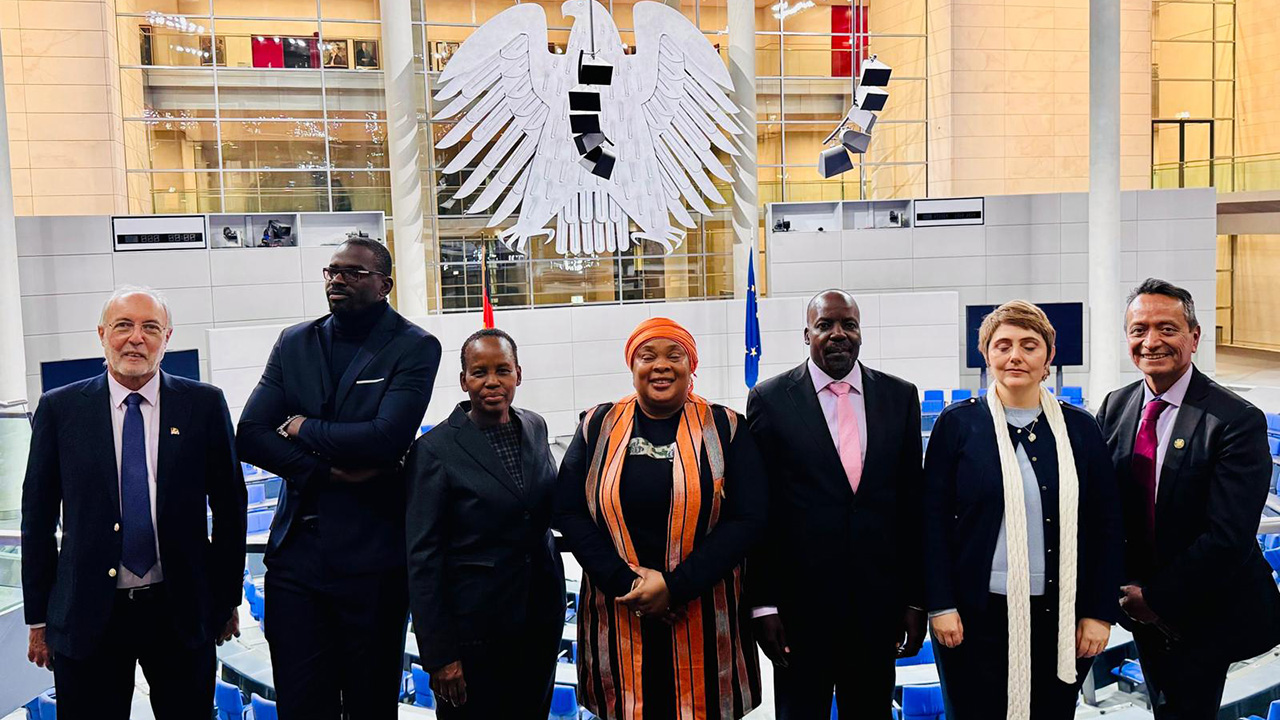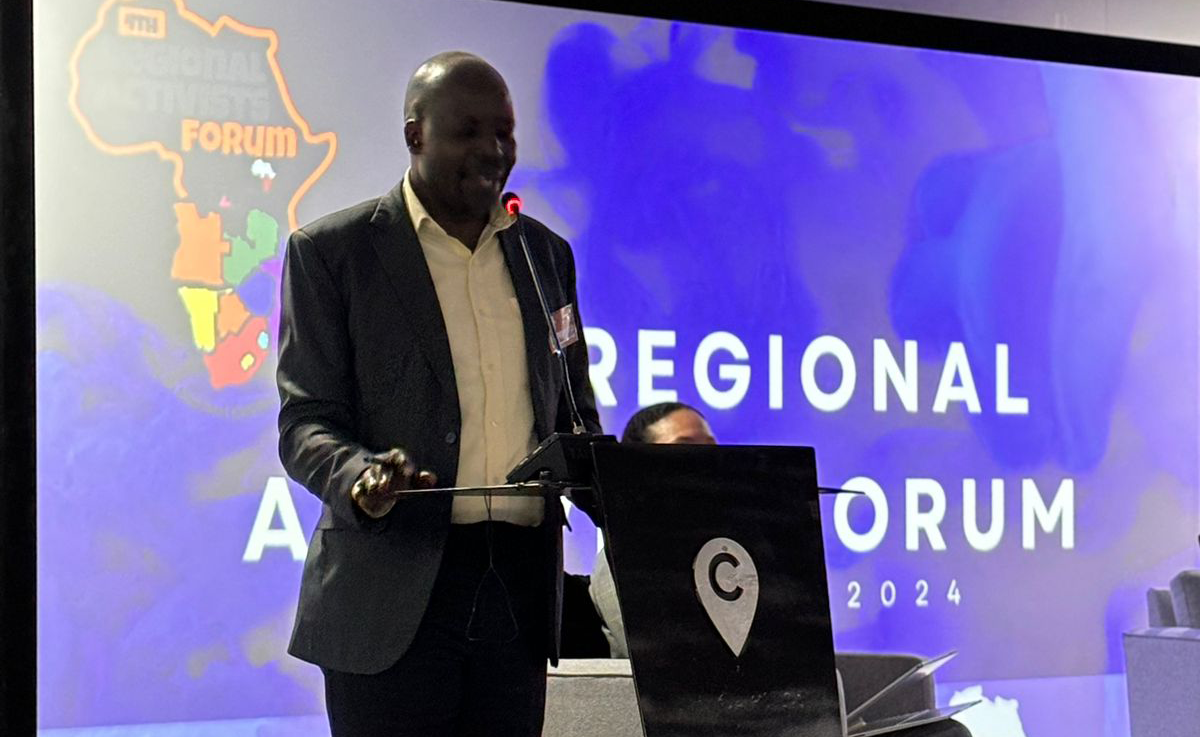
On 22 to 26 April 2024, a PGA Parliamentary Delegation – from Cook Islands, French Polynesia, New Caledonia, Solomon Islands, Tonga, and Vanuatu – participated in the 3rd Pacific Human Rights Conference on Pacific Islanders of Diverse Sexual Orientation, Gender Identity and Expression and Sex Characteristics: Working for Global Justice and Local Human Rights. The regional convening, which took place in Nadi, Fiji, provided the delegation with many opportunities to engage with various stakeholders including lesbian, gay, bisexual, transgender, queer and intersex (LGBTQI+) civil society leaders, experts, religious leaders and government representatives.
PGA organized meetings for legislators to engage in dialogue on the situation of LGBTQI+ persons in Pacific Island States with civil society leaders, hear from experts and share good practices on the importance of inclusion of marginalized populations to effectively address pressing issues such as climate resilience, health, education and economic sustainability. Jessica Stern, U.S. Special Envoy to Advance the Human Rights of LGBTQI+ Persons, provided an overview of her mandate and situation of LGBTQI+ persons worldwide and in the Pacific region; Ariane Adam, Head of Legal at Human Dignity Trust, explained the impact of legislative and public policy reforms; and Lavetanalagi Seru, Pacific Climate Justice expert, gave an overviewof the situation in the Pacific region and provided recommendations on inclusive policies in mitigation/adaptation strategies to address the climate crisis.
Although each country has unique challenges to LGBTQI+ inclusion given the diverse legal and policy landscape of the region, some common issues were raised:
- prevalence of anti-LGBTQI+ narratives and stigma from religious and cultural perspectives;
- conflating decriminalization of consensual same-sex relations with marriage equality;
- use of inflammatory language and scapegoating of LGBTQI+ persons by government officials making it difficult for the community to engage with its elected officials;
- physical and psychological violence against LGTBQI+ persons, even in countries that have an inclusive legal system; and
- lack of implementation of inclusive laws (e.g. legal gender recognition) and policies which address the specific needs of LGBTQI+ persons, including in healthcare (e.g. gender affirming care).
Civil society leaders from the region emphasized the important role of legislators in ensuring the decriminalization of consensual same-sex relations in every country, the approval of LGBTQI+-inclusive policies for all public services and meaningful dialogue with constituents on the topic. Civil society also emphasized the importance of sensitizing legislators to these issues and providing safe spaces for them to hear the testimonies directly from grassroots activists on the challenges facing the community and what legislators can do to address these challenges.
Parliamentarians and civil society leaders were enthusiastic in asking PGA to develop tools and resources for Pacific parliamentarians that address regional issues and concerns.
PGA’s Global Parliamentary Campaign against Discrimination based on Sexual Orientation and Gender Identity (SOGI Campaign) will continue mobilizing parliamentarians as human rights champions, taking action to guarantee that every individual has equal value, lives with dignity and is able to achieve their highest potential free from all forms of violence and discrimination, including on the basis of SOGIESC. One of the tools used when PGA provides technical assistance to its members is the publication: Advancing the Human Rights and Inclusion of LGBTI People: a Handbook for Parliamentarians. This PGA-UNDP document debunks myths and includes key practical recommendations for legislators to further inclusion.
The meetings in Fiji will inform the development of the upcoming PGA Pacific Parliamentary Toolkit on SOGIESC Inclusion, through the lens of intersectional identities, culture and religion in the region.
PGA extends its thanks to the Department of Foreign Affairs and Trade of Australia for its support of this event.




